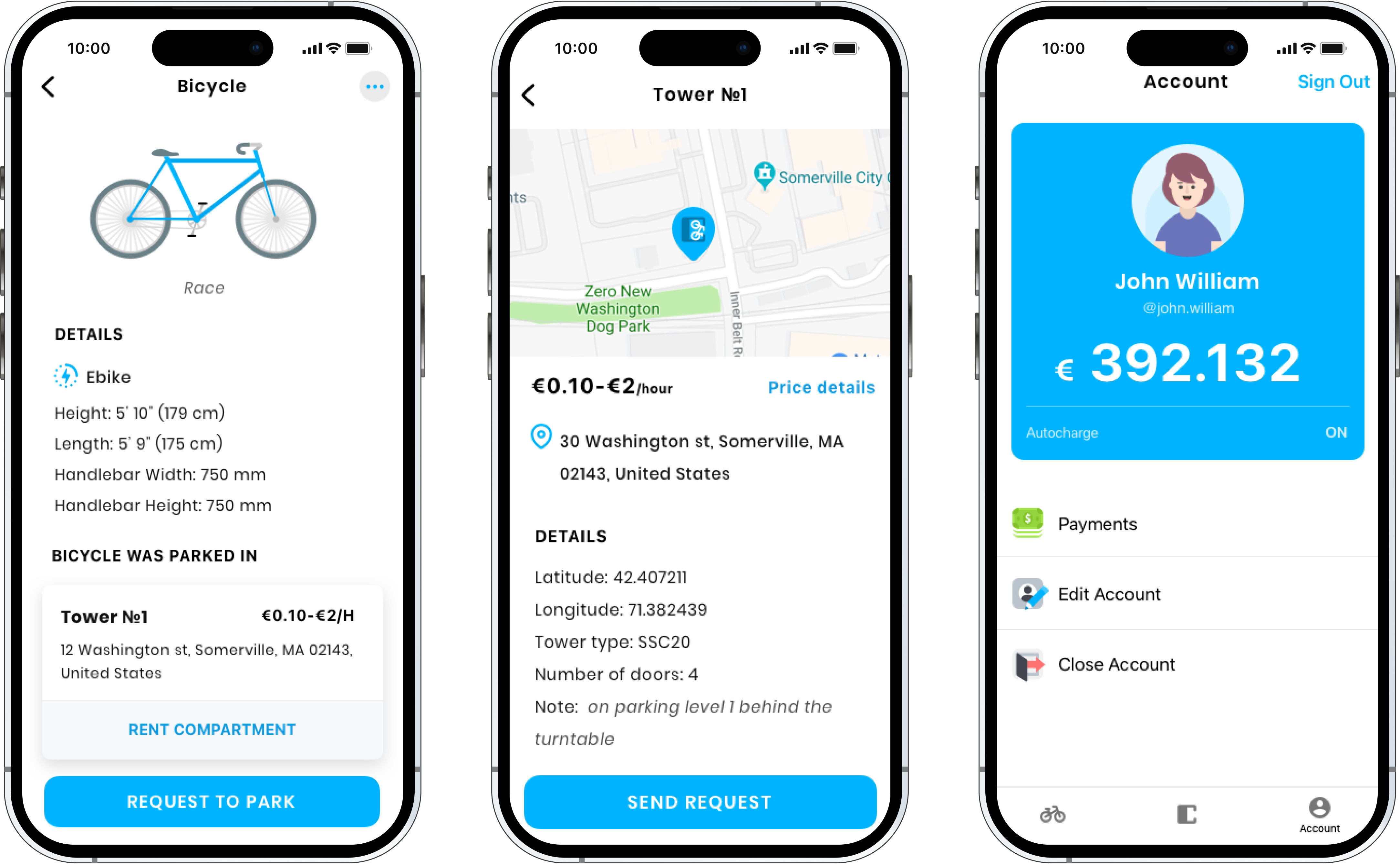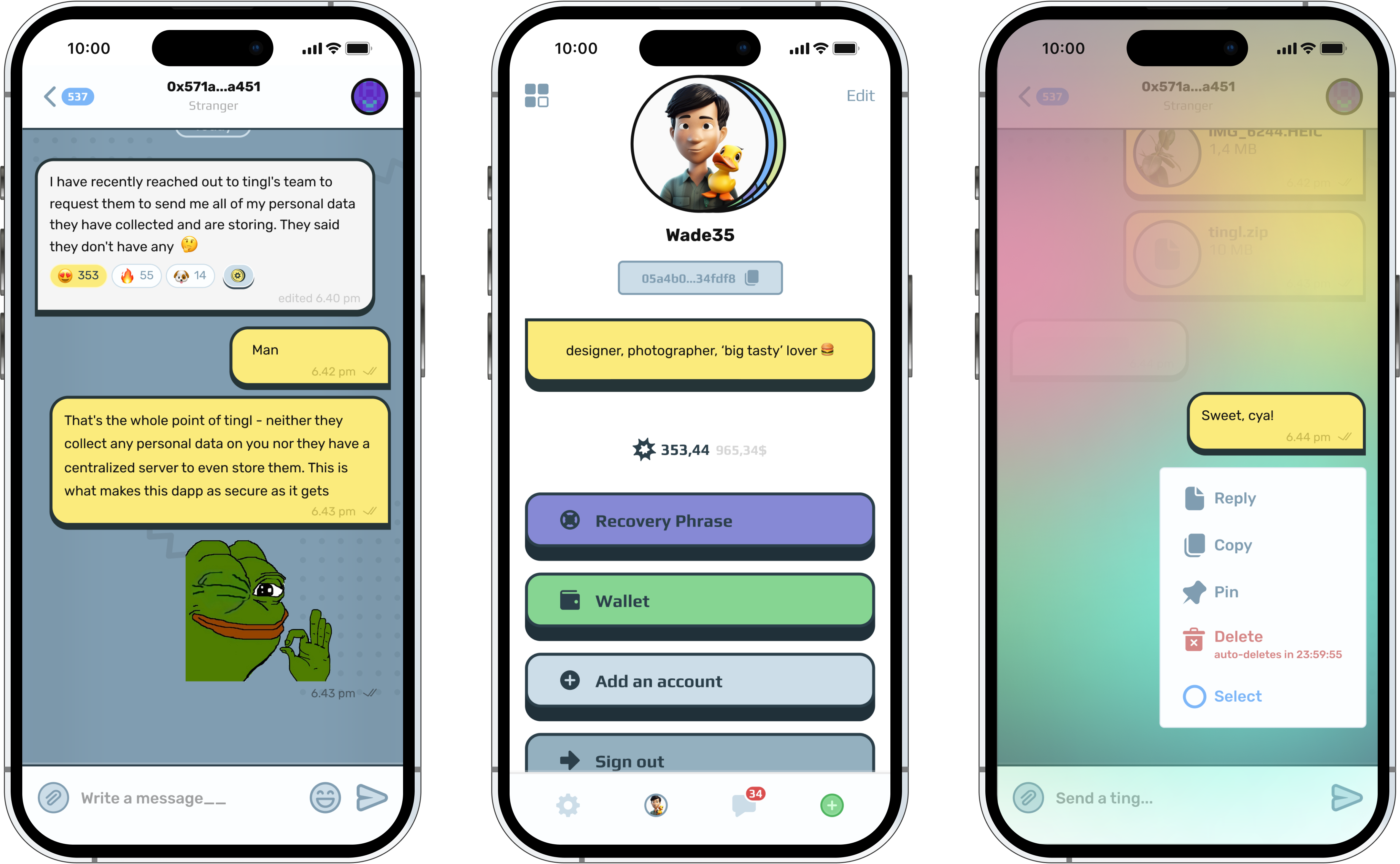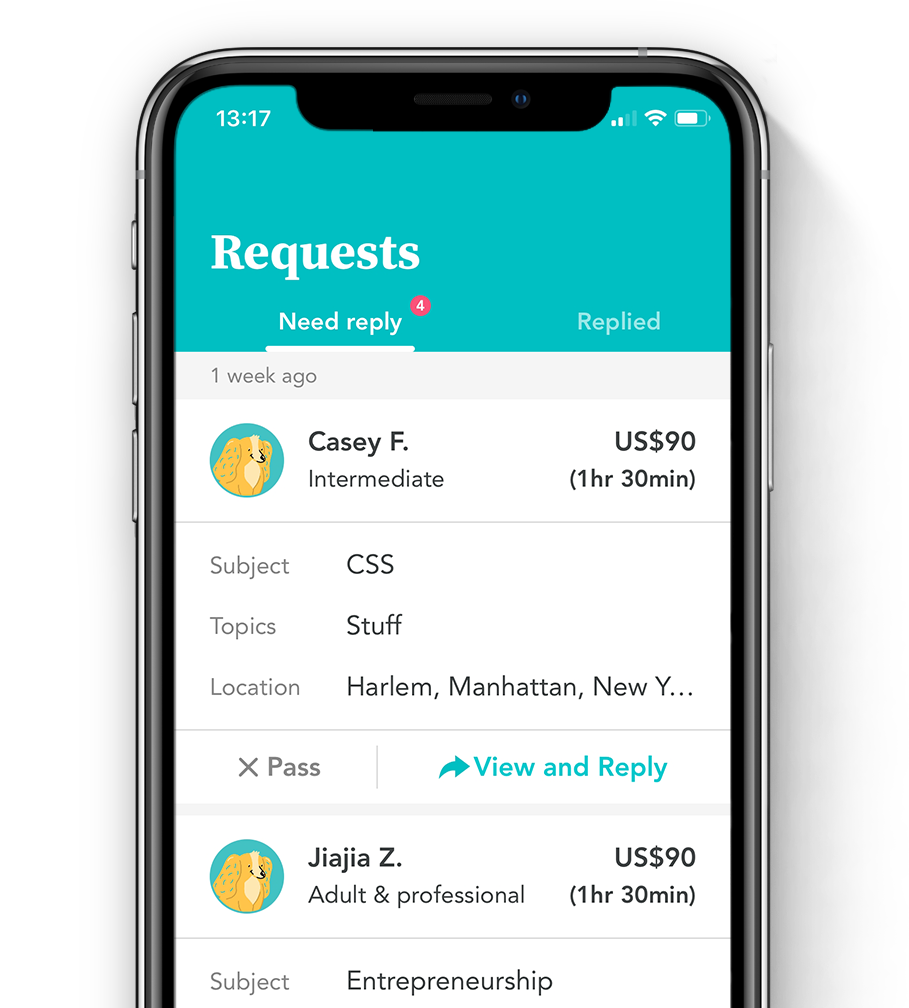Developing an iOS app that users will find worthy of their limited attention and iPhone space is no easy task. Ideally, an app should not only solve a user’s problem but also be fun to use. By fun, we mean no bugs, sleek interfaces, and some features that will make you stand out. But how much would all of that cost you? And how do app development companies estimate iOS development costs? In this article, you’ll find the answers, and by the end, you’ll understand all aspects that affect the cost of developing a winning iOS app. Let’s go!
Factors affecting iOS app development costs
To better understand what drives the iOS app development cost up, you need to consider several important factors. We’ve broken them down so you can determine your iOS app complexity and respective price range.
Technical app complexity
The technical side of iOS app development greatly affects overall app complexity. Apps that require intricate coding, such as writing custom algorithms for complex calculations or building APIs from scratch, require more effort and time and, therefore, are considered complex.
Data management also plays a role. Handling large volumes of user data, especially sensitive information like financial or health records, requires a scalable back-end infrastructure and enhanced security.
On the contrary, apps that rely on commonly used libraries and readily available APIs and manage minimal user data locally are much easier to build and cost less.
To sum up, here’s what determines technical app complexity and affects the cost to build an iOS app:
- Straightforward vs intricate coding
- API integrations
- Back-end infrastructure
- Data volume and type
- Performance optimization
- Compatibility with multiple iPhones and iOS versions
- Use of third-party SDKs and frameworks
- Basic vs. robust security measures
- Native vs. hybrid development
Feature sophistication and number
The app’s complexity can be not only technical but also functional. Depending on the number of features and their sophistication, your iOS app can be categorized as simple, moderate, or complex.
Simple apps offer one or two core functionalities. Examples of simple apps are calculators, to-do-list apps, and basic fitness apps for logging workouts and tracking progress.
Moderate apps come with features like user authentication, social media integration, and in-app purchases. A restaurant reservation, job search, travel planning, or language-learning app can be classified as moderate.

Advanced features like real-time chat, social media integration, or complex data processing algorithms will put you into the category of complex apps. Think of ride-sharing apps, social media platforms, on-demand video streaming or apps with AR features.
App design
Another factor that impacts the cost of iOS app development is UI/UX design. Simple apps typically use standard UI elements and layouts with minimal interaction. A weather app, a news app, or a reminder app can do fine with basic design.
Conversely, a banking app, a food delivery app, or a photo editor requires a custom design encompassing extensive user research, wireframing, prototyping, and iterative testing.

Creating engaging and user-friendly interfaces may also require unique animations and micro-interactions. However, adding them takes more time and resources than using pre-built templates.
Simple vs Moderate vs Complex App Comparison
Features
one or two core feature
multiple, interconnected functions
real-time, AI, or AR capabilities
Design
standard elements
custom design
unique interaction patterns
Backend Development
basic server setup
advanced backend with multiple integrations
complex backend with real-time data sync and user management
API integrations
few or none
several
extensive
Estimated Cost
$30,000 – $50,000
$70,000 – $150,000
$200,000+
Development Time
1-3 months
4-7 months
8-12 months
Examples
Apple Notes, Voice Memos
Spotify, Duolingo
Facebook, Uber
Development team location and expertise
The cost of iOS app development also depends on the team behind your project. You have several options here.
First, you could build your in-house development team. But that’s a huge upfront investment. It requires hiring developers, designers, QA engineers, and project managers, incurring salaries, benefits, and office space costs.
The second option is to hire an iOS app development agency. We at Redwerk carry all the overhead costs associated with ramping up a development team and charge only for hours worked within the previously agreed scope. The trick here is to hire an agency from a country with a lower cost of living but similar work ethics.
Lastly, you could work with freelance iOS developers, but you’ll need to invest more time in team management and code quality. Also, freelancers are known to be less committed than dedicated teams from an agency.
iOS app development stages and associated cost
Some businesses require development from scratch, while others may need help only at a certain stage. So, it’s good to understand how much money to allocate for each phase. Remember that these are rough numbers; the exact cost will depend on your specific needs and differ from vendor to vendor. Here, you’ll find the average cost to develop an iPhone app.
1. Planning & Discovery (from $5,000)
This stage involves defining the app’s target audience, conducting market analysis, assessing technical and financial feasibility, as well as finalizing functional and non-functional requirements. Defining scope, timeline, and resource allocation also happens here.
2. Design (from $20,000)
This stage focuses on crafting the app’s user interface (UI) and user experience (UX). This includes creating wireframes, prototypes, and mockups that define the app’s look and feel. Costs depend on the complexity of the design and the number of screens.
3. Development (from $50,000)
This is where the app comes to life. Developers write code to translate the design into a functional app. The cost here varies greatly depending on the app’s complexity, features, and development team location.
4. Testing (from $20,000)
Rigorous testing is essential to ensure the app not only functions smoothly but is also usable. It should happen early in the development cycle to reduce expenses.
5. Deployment & App Store Launch (from $5000)
Submitting the app to the App Store requires participation in the Apple Developer Program that costs $99 annually. But you also need to promote your app and take care of App Store Optimization (ASO) efforts, which can incur significant costs.
Hidden iOS app development costs
Beyond the typical development stages, several hidden costs can creep into your iOS app development budget. Make sure to consider these expenses to calculate your overall iPhone app development cost:
- App Store Review Process. Apple’s App Store review process is quite strict, and you might need to make adjustments based on their feedback, which translates into additional development work. In 2022, Apple rejected over 1.6 mln submissions because of performance and legal issues.
- Third-Party Integration Fees. Integrating map services, social media logins, payment gateways, or analytics tools often requires licensing fees, subscription costs, or per-transaction charges.
- Server and Hosting Costs. Hosting the app’s backend services and ensuring scalable server infrastructure may incur from $500 to $5,000 per month, depending on traffic, storage requirements, and chosen services.
- User Acquisition. A well-rounded user acquisition strategy that combines organic and paid methods requires a significant ongoing investment.
- Localization and Internationalization. Taking your app worldwide to reach more people is great, but this increases your iPhone app development price. Translating app content and adjusting user interfaces for different languages can cost somewhere between $1,000 and $5,000 per language.
- Legal and Compliance Fees. Consulting with legal experts to comply with GDPR or HIPAA regulations can involve fees ranging from $2,000 to $10,000.
- Maintenance and Security. Maintaining the app with bug fixes, new features, and updates for future iOS versions requires ongoing development costs. You also need to continuously monitor and enhance app security to protect user data. So, budget for periodic software development audits, penetration testing, and security patches.
iOS development cost based on app category
The cost of an iOS app can vary wildly depending on what kind of app it is. A game with amazing 3D graphics and multiplayer features is going to need a lot more work than a simple to-do list app. If you’re targeting a business audience with financial data, security becomes super important, and that requires extra effort to get it right.
Let’s take a few real-world iOS apps from popular App Store categories and break down their cost.
Source: Statista
Business
As of 2024, the top-grossing app in the Business category on the App Store is LinkedIn. While Redwerk didn’t contribute to LinkedIn development (hey LinkedIn team, if you’re reading this, we’d love to), we helped develop Recruit Media, a platform for recruiters and candidates with a focus on video resumes and AI-powered keyword search. So we know firsthand what it takes to develop both basic and advanced features.
LinkedIn Core Features:
- User authentication and profiles
- Networking and connections
- Feed and content sharing
- Real-time messaging
- Job search, job posting, and application tracking
- Search functionality
- Admin panel: user management, content moderation, analytics
Rough Cost Estimation: 2,000 man-hours ✕ hourly rate
Education
The leader in the Education category is Duolingo, a language-learning app. We at Redwerk have long-standing expertise in developing e-learning solutions. One of the projects we helped bring to life is Gooroo, an online learning and tutoring app. With this hands-on experience, we can estimate and implement similar projects.
Duolingo Core Features:
- User authentication and profiles
- Multimedia content (text, audio, images, videos), interactive exercises, structured lessons
- Gamification: points system, badges, leaderboards, progress tracking
- Practice and review sessions
- Support for multiple languages
- Level progression and adaptive learning paths
- Notifications and reminders
- Admin panel: course content management, user management, analytics and reporting
Rough Cost Estimation: 2,600 man-hours ✕ hourly rate
Lifestyle
How much does it cost to develop an iOS app like Tinder? Yes, Tinder ranks first in the Lifestyle category. Dating apps have many functionalities similar to instant messengers and social networking apps. They can also borrow some features from marketplaces.
Tinder Core Features:
- User authentication and profiles
- Geolocation and the matching algorithm
- Swiping interface
- In-app messaging
- User discovery and search
- Push notifications
- Premium features: boost, super likes, passport feature
- Admin panel: user management, content moderation, analytics and reporting
Rough Cost Estimation: 1900 man-hours ✕ hourly rate
Entertainment
TikTok is the top-grossing app in the Entertainment category. Given the abundance and technical complexity of some features, TikTok can be classified as a complex app. So, when estimating iOS development cost for an app like TikTok, remember that recreating it will take more effort and time.
TikTok Core Features:
- User authentication and profiles
- Video uploading and editing
- Feed and content discovery
- Likes, comments, and sharing
- Real-time video streaming and viewer interactions
- Push notifications
- In-app messaging
- AR effects and filters
- Security and privacy settings
- Admin panel: user management, content moderation, analytics and reporting
Rough Cost Estimation: 3,000 man-hours ✕ hourly rate
Ways to reduce iOS app development cost
Building an iOS app can definitely drain your wallet, but fear not! We’ll share some tricks to slash those costs without skimping on quality:
- Define Project Scope. Outline the app’s features, functionalities, and timeline in detail. This helps avoid scope creep, which can lead to unnecessary expenses.
- Prioritize Ruthlessly. Focus on the core functionalities that solve your users’ problems and postpone nice-to-haves for later updates based on their feedback.
- Use Pre-Built Solutions and Libraries. Make sure your team or IT vendors leverage UI kits, libraries, and frameworks to save money on design and development. No need to reinvent the wheel.
- Consider Cross-Platform Development. If you target both iOS and Android users, this can be a cost-effective solution. Tools like React Native or Flutter allow you to build an app that works on iOS and Android with a single codebase. However, there are certain drawbacks, like limited functionality and potential performance issues.
- Hire Globally. Look beyond your borders and hire developers from regions where coding skills are top-notch but rates are more chill. Countries like Ukraine, Poland, and Romania are known to have highly skilled developers and lower prices than North America and Western Europe.
iOS app costs vs. Android app costs
We’ve talked so much about iPhone app development costs, but what about Android development? Is it, by any chance, cheaper? Not really. It can be even more expensive, mostly because of device fragmentation. That means Android developers and testers need to spend more time ensuring compatibility across numerous devices and OS versions. The iPhone ecosystem is less fragmented and has fewer devices to support. But let’s look at other factors that determine app development cost.
Design and UI
cheaper due to fewer devices
more expensive due to device fragmentation
Development Time
faster due to fewer devices
longer due to device fragmentation
Quality Assurance
lower testing costs
higher testing costs
App Review Process
stricter and potentially more development effort is required
less strict
Distribution Fees
$99 annually
$25 once
User Acquisition
higher due to a premium user base
lower cost per install due to a larger user base
Monetization
higher average revenue per user
lower average revenue per user
Maintenance
lower due to fewer OS updates and models
higher due to diverse OS versions and devices
As you see, it’s not that black and white but generally iOS app development costs can be slightly lower.
How can Redwerk help you with iOS app development?
Redwerk is a software development agency with a large portfolio of successfully delivered iOS apps. Since 2005, we’ve helped businesses in North America, Australia, New Zealand, and Europe build award-winning apps that have users glued to their screens.
Need a brainy team to build your iOS app from the ground up? We got you. Got an existing app that needs a makeover? Consider it done. Redwerk can support you at each phase of software development, be it devising specs, creating stunning and intuitive interfaces, or handling the actual development and QA.
Success Stories:
- Quandoo, a restaurant management app used by 18,000 restaurants in 12 countries
- Recruit Media, a recruiting app with AI capabilities acquired by HireQuest, North America’s staffing giant
- Gooroo, an e-tutorship app recognized on Product Hunt among the top 3 products of the month
Have an app idea bouncing around your brain? Don’t do it alone! Reach out to the A-team at Redwerk, and let’s make it happen.
FAQ
1. What is the average iOS app development cost?
The average cost to develop an iOS app can range from $50,000 to $150,000, depending on complexity and developer rates.
2. Why does the cost of iOS app development vary so widely?
iOS app costs swing due to factors like technical app complexity, number of features, design requirements, and developer experience and location. Security, future growth, and ongoing maintenance also play a role.
3. How can I estimate the cost of my iOS app development?
Break down the project into design, development, testing, and maintenance components. Consider the complexity of each feature, the development team’s location and hourly rates, and potential additional costs.
Contact a few app development companies and discuss your project. They can provide a more accurate estimate based on their experience and team structure. Redwerk provides such estimates for free.
4. What are the common unexpected expenses in iOS app development?
Integrating third-party services, extended testing for compatibility with new iOS updates, post-launch maintenance and bug fixes, enhanced security measures, App Store fees, and costs related to performance optimization. Change requests can also lead to unforeseen expenses.
5. Are there any differences in costs between developing an app for iPhone and iPad?
Yes, because the app’s design and user interface need to be optimized for different screen sizes and resolutions. Additional development time might be needed if your app incorporates features that leverage the iPad’s unique capabilities, like split-screen multitasking or Apple Pencil support.
See how we helped Gooroo
develop an e-tutorship app for iOS
and get 90% of five-star reviews




